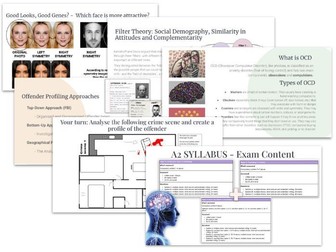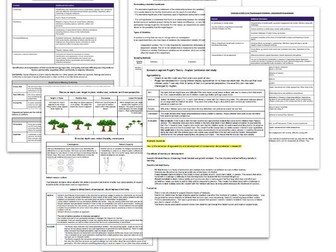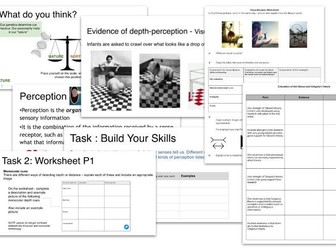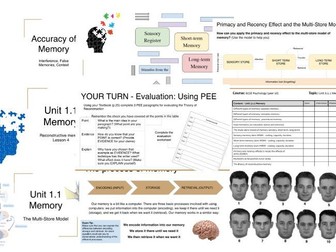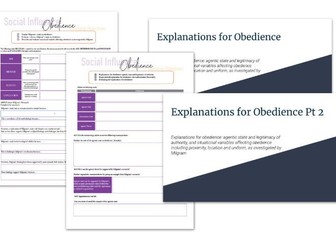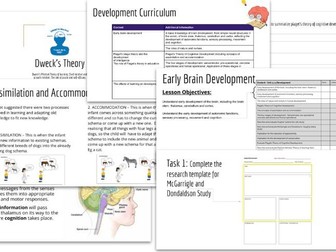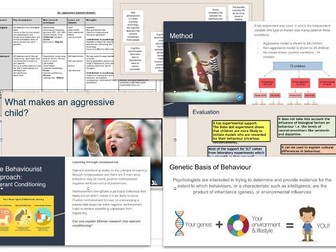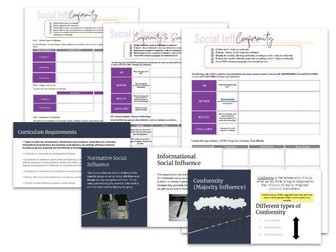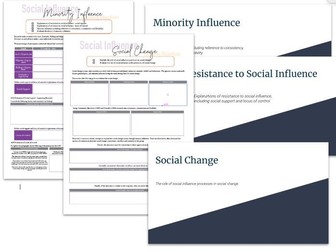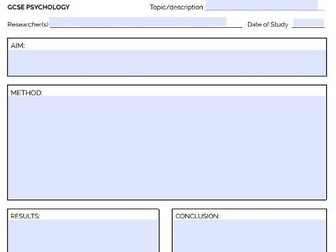AQA A Level Psychology - Taster Lessons
<p>A brief but engaging and interactive selection of AQA A Level Psychology content material for Year 11 taster sessions. Sessions are designed for approximately 1.5 hours each, however they can be altered to suit any time frame. All sessions can be done either online or in class.</p>
<p>6 x AQA A Level Psychology taster lessons with extra resources.<br />
Content Covered:<br />
Session 1: Introduction to A Level Psychology<br />
Session 2: Social Influence<br />
Session 3: Forensic Psychology<br />
Session 4: Psychopathology<br />
Session 5: Attachment<br />
Session 6: Relationships</p>
